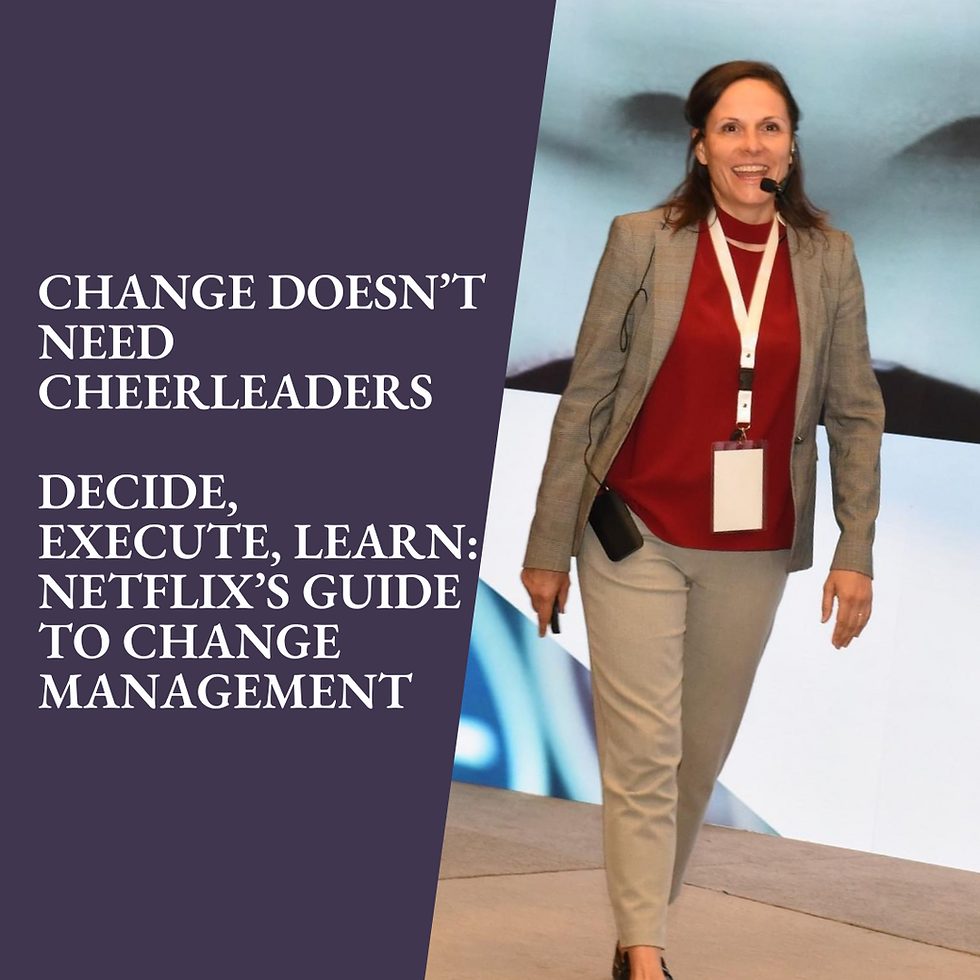Don't Blame Employees for the Experiences You Gave Them
- Szilvia Olah

- Apr 18, 2023
- 3 min read
Recently, you may have heard employers and businesses claiming that people don't want to work. However, is that really true? Maybe it's not that people don't want to work, but rather they don't want to work under certain conditions offered to them. Employees' experience in the workplace plays a significant role in their motivation and engagement, and employers need to understand and prioritise the employee experience to create a positive work environment.
The employee experience encompasses all the interactions, perceptions, and emotions that an employee goes through during their tenure with a company. It starts from the moment a potential employee checks out a company's website or Glassdoor reviews before applying for a job and continues throughout their entire journey, including the recruitment, hiring, and onboarding process, their day-to-day work, relationships with team members and managers, performance evaluations, and even after they leave the company.
Employees form impressions about their employers based on their experiences at each stage of their journey.
My experience with the company when I checked out their website or Glassdoor reviews before applying for the job.
My experience during the recruitment, hiring, and onboarding process.
My experience during my first week.
My experience with my team members and the team atmosphere.
My experience with my direct line manager.
My experience with managers & HR when I do well and when I make a mistake.
My experience with tools and processes provided to do my job.
My experience when I make a suggestion.
My experience when things go wrong and I need help or support.
My experience when I had an exceptional performance.
My experience during the week when my performance slumped.
My experience when I challenged the status quo.
My experience when I requested overtime as I needed more money or asked for flexible work to attend to my family.
My experience during my performance evaluation.
My experience when I got sick.
My experience when I handed in my notice.
My experience on my last working day.
My memories of the time with the company six months after I said goodbye.
It is all about employee experience. You will do everything differently if you craft your processes, policies, actions, and behaviour with the employee experience in mind. And when you do that, you will stop saying, "People don't want to work."
To fix your challenges start paying attention to the following.
Recruitment, Hiring, and Onboarding Process: How potential candidates are treated during the recruitment and hiring process and how they are onboarded into the company sets the tone for their overall experience. If candidates are treated with respect, kept informed, and provided with a smooth onboarding process, it can create a positive impression.
Team Atmosphere and Relationships: The dynamics within a team and the overall team atmosphere significantly impact the employee experience. A supportive and inclusive team culture where employees feel valued, respected, and supported can foster a positive work environment and contribute to employee satisfaction and engagement.
Managerial Support and Recognition: Employees' relationship with their direct line manager and how they are recognised for their efforts and contributions also play a crucial role in the employee experience. A supportive and fair manager who provides feedback, recognition, and opportunities for growth can boost employee morale and motivation.
Tools, Processes, and Resources: The company's tools, processes, and resources to perform the job also impact the employee experience. If employees have the necessary tools and resources to do their job effectively, it can improve their job satisfaction and productivity.
Support and Help: Employees' level of support and assistance when facing challenges, making mistakes, or needing help also shapes their experience. A supportive and responsive HR team and managers who offer guidance and assistance when needed can contribute to a positive employee experience.
Flexibility and Work-Life Balance: Flexibility in work hours, remote work options, and consideration for work-life balance are also crucial factors in the employee experience. Employees who feel their work allows them to balance their personal and professional responsibilities are more likely to be satisfied and engaged.
Performance Evaluation and Feedback: How employees are evaluated, provided feedback, and recognised for their performance is another significant touchpoint in the employee experience. Fair and transparent performance evaluation processes that provide constructive feedback and recognition can enhance the overall experience.
Support during Challenging Times: How companies support employees during challenging times, such as when they are sick or facing personal difficulties, also affects their experience. Compassionate and supportive policies and practices during such times can positively impact employees' loyalty and commitment.
Exit and Post-Employment Experience: Even when employees leave the company, their experience during the exit process and their memories of their time with the company can have a lasting impact. It is up to the employer whether it is positive or negative.

.png)



Comments